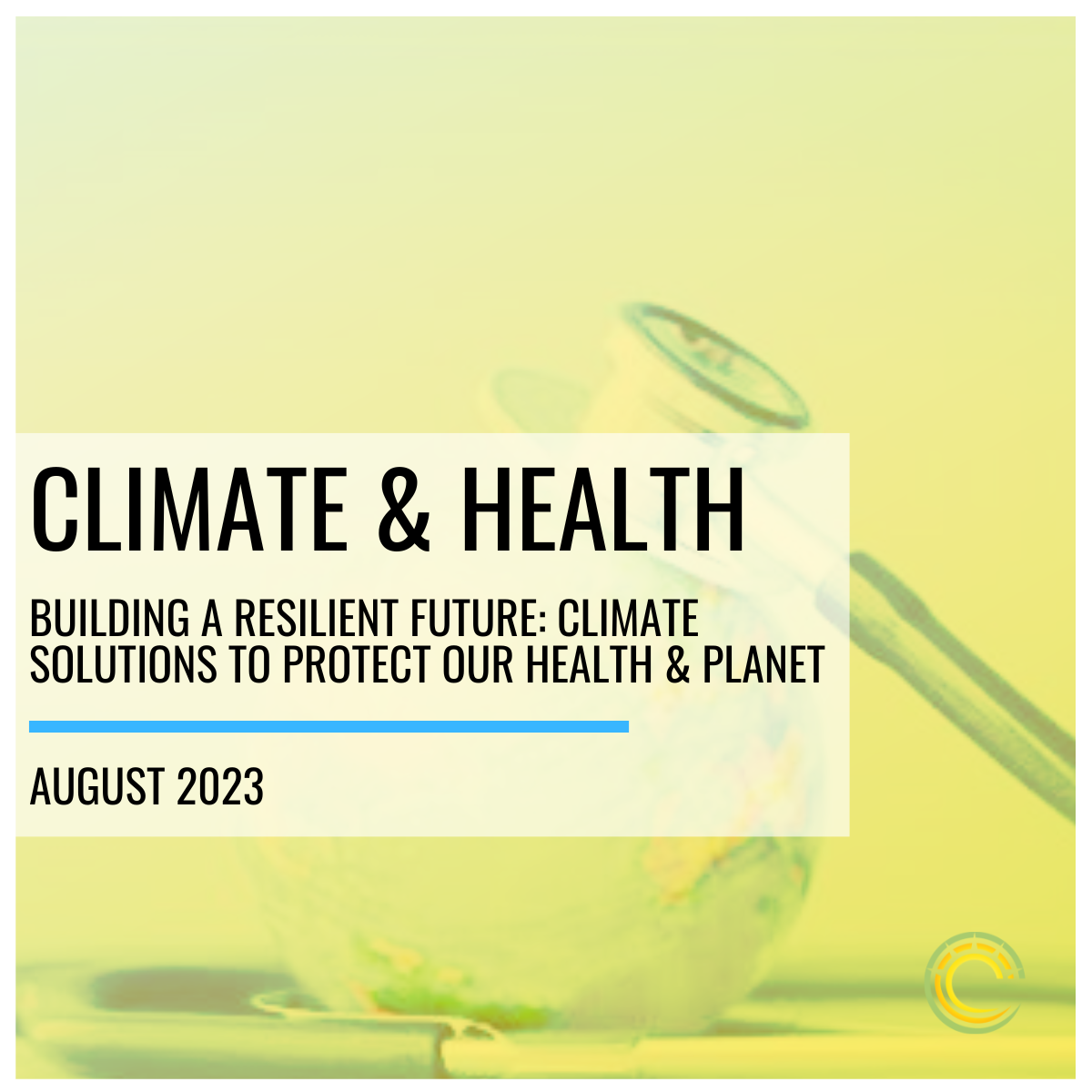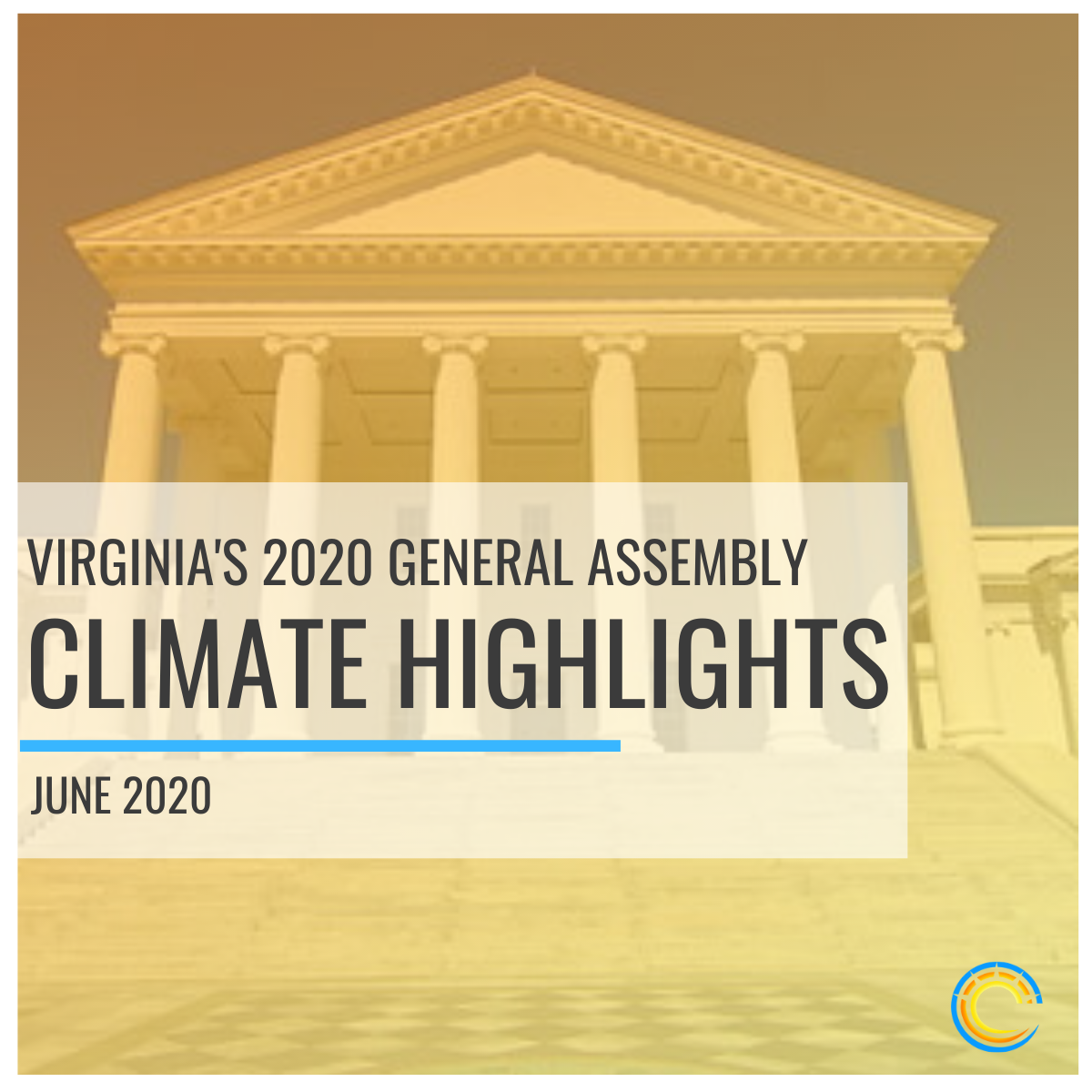C3 Reports
Keeping you informed.
We want to keep you informed on key issues, legislative action, and incentives that, not only drive policy solutions at the local level, but inspire individual advocacy and action. Click to download or learn more about our latest reports. Questions? Email policy@theclimatecollaborative.org.
This report is an assessment of the three leading alternative fuels for transit buses: Compressed Natural Gas, Battery Electric Buses, and Fuel Cell Electric Buses. We've created this report to inform localities on the best alternative fuel options aligned with climate objectives, public health, environmental justice, fiscal responsibility, and service quality.
The broad-ranging health effects of climate change can be more subtle than the immediately apparent impacts, such as extreme weather events and pollution. Marginalized communities often bear the brunt of these consequences due to historical inequalities. The intersection of climate change, equity, and health also offers opportunities for shared solutions. This report examines the hidden health consequences of climate change and explores equitable strategies that can benefit both people and the environment.
C3 created a series of informational one-pagers on key climate topics: (i) climate justice, (ii) climate and health, (ii) transportation justice, (iv) energy justice, and (v) natural gas and climate justice. These brief reports are meant to give digestible insights into important intersections that are crucial to understanding and addressing the challenges posed by climate change.
Transitioning to a clean energy economy rapidly and justly is a crucial part of addressing the climate crisis. That’s why C3 analyzed the proposed Woodridge Solar Project in Albemarle County using our very own Solar Climate Justice Scorecard to assess the project in four key climate justice areas: (i) Procedural Justice, (ii) Distributional Justice, (iii) Restorative Justice, and (iv) Other Socio-Economic and Environmental Factors. Check out the report to see why we support the Woodridge Solar Project, and sign our petition to urge the County move ahead with this project.
Public and private entities offer several monetary incentives for climate action through energy efficiency, renewable energy, and transportation measures. With this newly updated report, C3 informs Charlottesville and Albemarle County residents of their options to save money and take action against climate change. There are 44 incentives available to support local climate action listed! Take advantage today. Note: we have not yet updated this report to reflect the Inflation Reduction Act incentives.
C3 and LEAP partnered in late 2019/early 2020 to convert 8 homes in the City and the County to all-electricity and then conduct an analysis to understand the potential benefits and challenges of fuel-switching low-income households. LEAP and area contractors switched HVAC systems, hot water heaters, cooking ranges, and other appliances away from fossil fuel. C3 then followed the homeowners and their energy usage over the course of two winters.
Improving our transit system is essential to extending opportunity and access to all, breaking the cycle of poverty that burdens many underserved households. Our Transit Equity and Climate: Moving to a Cleaner Future presents a roadmap for improving our transit system. Reducing the expenses, pollution, and hassle of car-dependent communities also helps us achieve our climate goals. Let's shape together the advocacy needed to build a stronger transit system for our community!
C3 sought to understand which neighborhoods in Charlottesville are most at risk of bearing unsustainable energy costs, and what key factors must be considered when advancing energy equity in the City. By closely examining energy burden levels, important energy inequities were uncovered and paths for equitably tackling climate change and the housing crisis started to take a clearer shape.
The effects of climate change have both a global and local impact. This report explains how local biodiversity, public health and safety, agricultural production, and energy bills have already been impacted by climate change with considerations for how these effects may continue to impact the City of Charlottesville and Albemarle County in the future.
Numerous bills were passed during Virginia’s 2020 legislative session that will propel clean and renewable energy, improve energy efficiency programs, promote clean transportation, and advance the Commonwealth’s climate goals. This report highlights some specific bills that impact key areas of climate action in Virginia and provides insights on how they empower individuals, businesses, and communities to reduce emissions.










